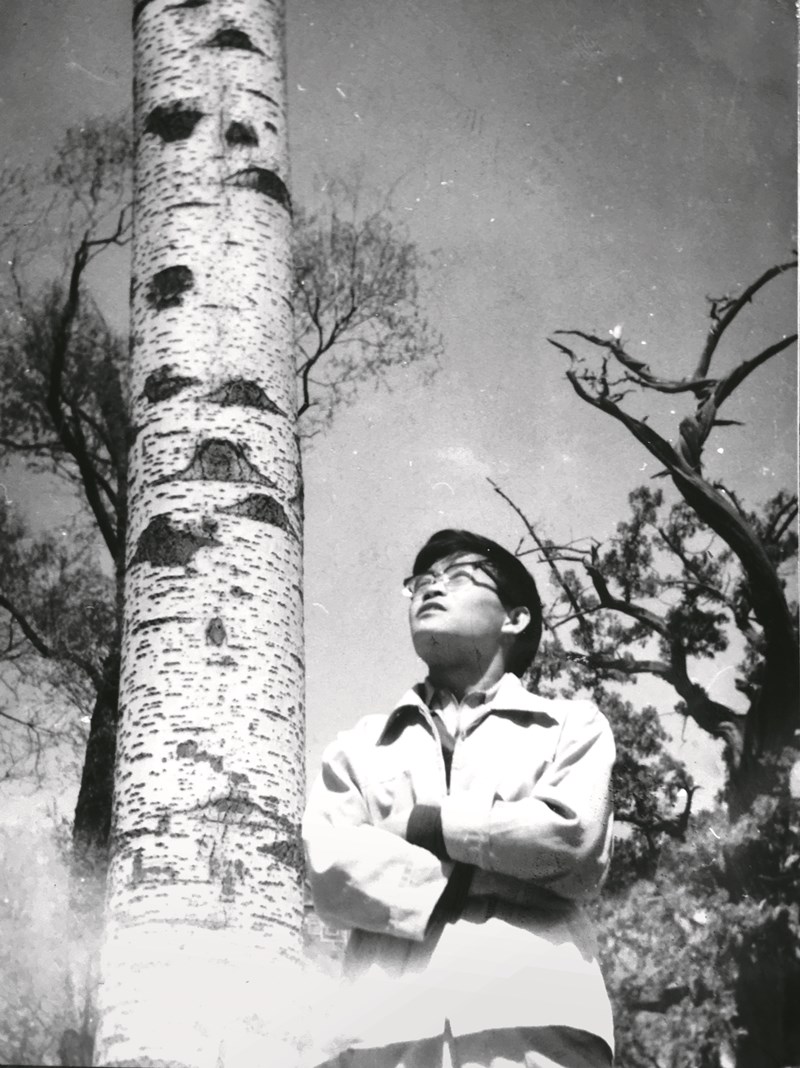My Three College Entrance Exams

In July 1979, I first entered a college entrance examination room at the age of 15.
When China resumed the national college entrance examination, also known as the gaokao,in 1977, I happened to be just reaching high school, which was a two-year secondary school program in rural Shanxi Province. I barely knew anything about the college entrance examination. I always imagined it would be a good thing to be able to go to college, but I was not sure whether I would pass the examination.
The examination center was in a primary school in Jincheng County, Shanxi Province. On the afternoon before the exam, Mr. Niu, the teacher who took us to the county seat for the exam, asked us to help him fill a large basket with beans. We sat under trees and listened to Mr. Niu dispense tips for the exam while picking beans together. That evening, we were each served a large bowl of noodles. What a delicious meal that was! The dish was rich in oil and meat. The beans were thoroughly cooked. Purple beans lurking under the noodles shone like agates. I can still clearly remember their glimmer.
That year my exam score was top among liberal arts candidates from our school, but still four points short of the threshold for admission to a technical secondary school. Later, I enrolled in a famous prep class for former graduates at Jincheng No. 1 High School. This class was organized
in 1978 and gained great fame the following year after 64 of its 65 students were admitted to universities. Many enrolled in prestigious institutions in Beijing and Shanghai.

Teachers of our class were excellent,and each had a different style. Yuan Dongsheng, our Chinese teacher, graduated from the Department of History of Nankai University. He enunciated every word of Mandarin extremely clearly. He loved playing basketball and was pretty good at it even in his mid-40s. Our geography teacher Li Xushou once worked as a secretary for Yan Xishan, an important political and military figure in the late Qing Dynasty (1644-1911) and the Republic of China period (1912-1949). Li once also served as a county magistrate in southern Shanxi, and his aggressive measures frightened the local bandits. Li spoke with a southern Shanxi accent, but every sentence he uttered was quite clear. He was good at sorting geographical knowledge, and his teaching immediately established a framework in our minds. Sometimes he seemed to digress, but after careful consideration, we realized such tangents were still related to geography. Our history teacher Hao Qinzhang was a vice-principal for our school. He was one of the few teachers who dared to publicly criticize several of my classmates who messed around and avoided studying. The English teacher was surnamed Zhang. His pronunciation was thick, melodious, and ethereal. Many years later, I realized he was actually speaking English at a speed for beginners.
Under instruction and guidance from these teachers, I became immersed in systematic learning. In 1980, I took the gaokao again but still underperformed in Chinese, with a total score exceeding the undergraduate standard by only six points. But I was still at an age of ignorance. When I filled out my application, I only listed famous universities, and none of them accepted me. I could only start another year of preparation.
I had insomnia the night before the examination in 1981. During the previous two gaokao I wasn’t nervous at all, but this time was different. When I rose in the morning, I remained in a trance and had to pump myself up like an athlete by the time I reached the examination room. The title of my composition was Review of “It’s Easier to Destroy Trees than Plant Them.” I thought that planting trees is difficult, but it would be equally hard to get me to give up. I began writing aggressively.
On this application, I included a wider variety of universities. Compared with the previous year, my total score improved a lot, but the competition had also increased because I was still only nine points beyond the undergradute standard.
Although the examination results were not great, I was still relieved even before getting any admission results. One day in August, I was working in a corn field when a classmate rushed towards me on a bicycle. He was shouting: “Zhao Yong! I have your admission letter!”
In the dazzling sunlight, I tore open the admission letter which revealed that I was accepted by the Department of Chinese Language and Literature of Shanxi University. Instead of excitement, something else emerged in my mind. I realized that I finally found good fortune. My classmate took me home on his bike so I could tell my father the good news as soon as possible. But standing on the loess road surrounded by corn, sorghum, and millet in the August wind remains a grand celebration in my memory.
The author is a doctoral supervisor at the School of Chinese Language and Literature of Beijing Normal University.